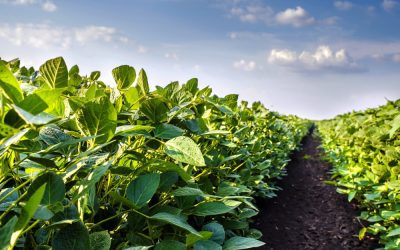Election results expected to create many policy changes in Washington
By Blair Shipp, American Soybean Association

As the 2024 election season wraps up, ASA is looking ahead to an important year for soybean farmers, including those in Indiana. With key changes in leadership across both the White House and Congress, ASA will continue to advocate for policies that support soybean growers, particularly in areas like biofuels.
The 2024 election has closed with control of the Senate and presidency passed to Republicans. The presidential race was secured by former president Donald Trump with 312 electoral votes. We will learn about key leadership positions in coming weeks, and clarity on agriculture policy and personnel may come as a new transition team is formed.
Republicans flipped four seats in the Senate — Montana, Pennsylvania, Ohio and West Virginia — to secure a majority of 53. Given the change in majority party, ASA expects Sen. John Boozman (R-Ark.) to move into the role as chairman of the Senate Agriculture Committee and Sen. Amy Klobuchar (D-Minn.) into the ranking member role in the new year.
Among ASA’s closely watched Senate Agriculture Committee members were Sen. Deb Fischer (R-Neb.) and Sen. Sherrod Brown (D-Ohio). Fischer won her election in what became a surprising battleground while Brown lost to Republican candidate Bernie Moreno.
Additionally, several House Agriculture Committee members’ races have been called. Reps. Zach Nunn (R-Iowa), Don Bacon (R-Neb.), Angie Craig (D-Minn.), Don Davis (D-N.C.), Nikki Budzinski (D-Ill.), and Eric Sorensen (D-Ill.) emerged victorious in tight races. Rep. Marc Molinaro (R-N.Y.) lost to his Democratic challenger, Josh Riley. Among House races not yet called are those of Reps. Mariannette Miller-Meeks (R-Iowa) and Marcy Kaptur (D-Ohio). Many House races remain outstanding and will determine control of the chamber and composition of committees.
ASA will continue to monitor developments related to election outcomes, the lame duck session expected to begin this month, and the transition of government that will officially occur in January 2025.
Challenges for biomass-based diesel
The California Air Resources Board voted 12-2 on Nov. 8, to approve amendments to the Low Carbon Fuel Standard, concluding a 2.5-year process of revising the regulation. The vote represents a step in California’s ongoing efforts to reduce transportation emissions by 90 percent by 2045, but it also introduces new challenges for the soybean industry, particularly for biomass-based diesel producers.
The updated LCFS is designed to drive further adoption of low-carbon fuels in the state, with higher LCFS credit prices offering financial incentives for biofuel producers. However, these changes also include provisions that could limit market opportunities for soybean-based biofuels. ASA has been deeply involved in the LCFS revision process, submitting comments, attending workshops and meeting with CARB staff and board members to ensure the concerns of the soybean industry were heard.
Among ASA’s main concerns were the failure to update key data used in the GTAP-BIO model, which determines the land use change penalty for soybean oil. Without the latest data, the model could unfairly disadvantage soybean-based biofuels compared to other feedstocks. The proposed 20 percent cap on the use of virgin vegetable oils — such as soybean, sunflower and canola oils — in biomass-based diesel also raised alarms, as this restriction could limit feedstock availability and constrain market opportunities for soybean biofuels. Additionally, new sustainability reporting requirements, while intended to ensure the environmental benefits of biofuels, could impose significant compliance burdens on producers of soybean-based fuels and potentially restrict their access to California’s biofuels market.
While the final amendments did not include significant changes to address ASA’s concerns, there are some developments in the Chair’s resolution, which accompanies the final vote.
The resolution does not express explicit support for the feedstock cap or the sustainability reporting requirements, instead calling for further evaluation of both provisions. It also directs CARB staff to update their lifecycle modeling with input from USDA, a step ASA has long advocated for. The resolution further calls for continued review of fuel availability as the new sustainability measures are implemented, ensuring that market impacts are considered as the LCFS evolves.
The amendments are expected to be finalized by CARB staff and could take effect as early as Jan. 1, 2025, though a more likely implementation date is April 1, 2025, if additional work is required. As the implementation process moves forward, ASA will remain engaged, continuing to advocate for changes that will benefit the soybean industry.
Although the final amendments do not fully address all of ASA’s concerns, the resolution provides a path for further discussion and potential adjustments in the future.
ASA’s work is far from over. The association will continue to monitor the situation closely, providing updates as the LCFS amendments are finalized and implemented.
ASA remains committed to ensuring that soybean-based biofuels have a strong place in California’s clean fuel future and will continue working with CARB and other stakeholders to advocate for policies that support the growth of the soybean biofuels industry.
Posted: November 16, 2024
Category: Indiana Corn and Soybean Post - November 2024, ISA M&P, News



